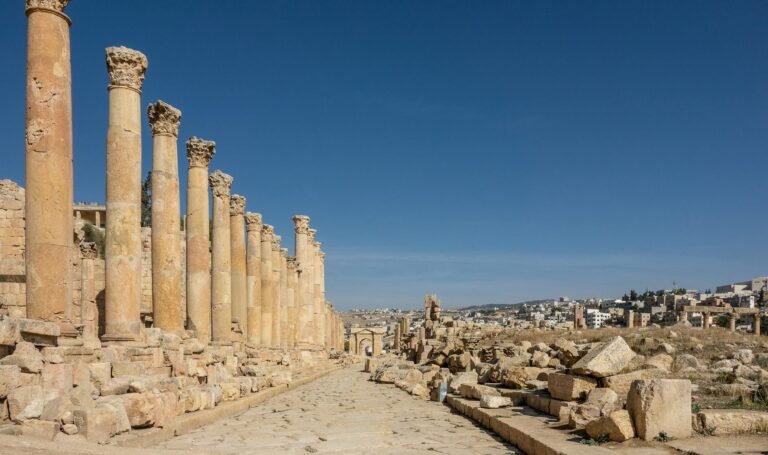Financial Feature: Your Will
September is National Wills Month. So today we are going to look at the importance of having a WILL.
Many people plan for the future but give no thought to death.
- If you die, will your family be provided for?
- Do you have a Will in place?
- If so, when last did you review your Will?
“There is a time for everything, and a season for every activity under the heavens: A time to be born and a time to die, a time to plant and a time to uproot” (Ecclesiastes 3:1-2)
And while speaking of death, do you know where you will spend eternity?
Life does not end at the grave. You will continue to live in eternity, either in heaven or in hell. The problem is that sin cuts us off, and we have all missed the mark. But there is Good News. Jesus paid the price on the cross so that all mankind could have eternal life.
If your eternity is a matter of chance, I ask you to seriously look at your relationship with God.
If want to start or restart your walk with God, click here to pray a simple prayer we have set up for you.
Now, with September being National Wills Month, I thought it would be a good time to look at WILLS…
Over the next two weeks, we are going to look at…
- What is a Will?
- What are the consequences of not having a Will?
- How do you set up a valid Will?
- What do you need to consider including in your Will?
- Are your loved ones protected?
What is a Will?
A Will is simply a legal declaration where you give your instructions on how you wish to distribute your wealth and assets on death.
When you draft your Will, you should name an Executor, who will be responsible for the administration process and for the winding up of the Estate. The Executor will ensure that your wishes are carried out and that your assets are distributed to your heirs and beneficiaries.
What are the Consequences of NOT Having a Valid Will?
If a person dies without leaving a Will, the person dies Intestate.
If this happens the Master of the High Court would determine who the closest blood relatives are and would then distribute the assets in terms of this.
This can cause a huge problem as your loved ones may not receive the funds you wanted them to have, as a distant relative (seen as your next of kin on your bloodline) may end up receiving assets you wanted to leave to your loved ones.
Who Can Draft a Will?
Provided that you are 16 or older and of sound mind, you can draft your own Will.
However, it is wise to seek expert and professional advice when drafting your Will to ensure that your needs and wishes are correctly spelled out and that your Will is valid. If your Will ends up being invalid, it could cause problems.
Do You Have Sufficient Assets in Your Estate?
It is important to ensure that you have enough assets in your Estate to cover debts, death expenses, and to provide an income for your family. Should you not have enough assets in your estate, your family may be left in trouble.
Also, should you not have enough liquid assets in your estate, the result could be that your family home may need to be sold to free up cash to cover death expenses and taxes, which is probably something you would never have chosen to happen.
You can take care of your liquidity requirements by having sufficient life cover in place to provide for loved ones, and to cover debts and death expenses, in the event of death.
How Do You Set Up a Valid Will?
Your Will must be in writing. It can be written by hand, typed, or printed.
The person making the Will must be at least 16 years old, or older, and must be mentally capable of understanding what they are doing and what the consequences of their action are.
Your Will needs to clearly state who is to inherit funds from within your Estate. You can nominate who you want your heirs to be and what they are to receive upon your death.
The name of your nominated Executor should be included in your Will. The Will may also state that the Executor is exempt from providing security.
The person who has made a Will (known as Testator/Testatrix) must sign each page of their Will in the presence of two witnesses who must also sign each page of the Will. If any alterations are made, both the person making the Will and the witnesses must initial the alteration.
The place and date of signing must be written at the end of the document.
Witnesses should be people who have no interest in the Will.
They should not be family members, stand to gain from the Will, or be the spouse of an heir, as they may be disqualified from receiving any benefit from that Will.
Witnesses’ signatures merely attest to the fact that the Testator signed the Will in their presence. They do not have to read or know the content of the document. Witnesses must be at least 14 years old and must be competent enough to give evidence in a court of law.
What Do You Need to Consider Including in Your Will?
In your Will, you should include all the beneficiaries you want to benefit from your Estate, and you should stipulate the inheritance each is to receive.
In your Will, you can request that a Trust be set up on death to protect your children. As an example, if your children are minors or if you believe they would be unable to handle their inheritance, you could request that the inheritance be held in Trust up to a predetermined age (Age 21 or 25).
You could stipulate that, during this period, funds could be released to cover studies, maintenance, and living expenses, etc.
In your Will, you can also nominate a guardian to look after children who are minors. Funds could be held in Trust with an income being released to cover expenses, while still protecting the assets in the Trust until your children are at a responsible age to handle their inheritance.
A Will can be used to protect an inheritance from the consequence of a future marriage, partnership, or union.
In your Will, you can also make provision for donating your body to an Organ Donor organization.
You can also specify whether you wish to be buried or cremated.
It is also a good idea to nominate alternate heirs should your nominated heir predecease you. If you do not nominate alternate heirs, your intestate heirs (nearest blood relatives) may inherit your estate in the event of your heirs predeceasing you.
In your Will, you should include full names and identity numbers of all persons included in the Will.
If you are drafting a new Will, it is important to state that your new Will replaces any previous Wills drawn up.
An important factor to consider in your Will is that if you leave your assets to your spouse there will be no death tax payable until the death of the last dying spouse (Under South African law).
Furthermore, if you nominate beneficiaries on your assurance policies, you can save on Executive Fees (Under South African law).
Keep Your Will Simple.
When drafting a will, you should…
- Keep the wording as plain and simple as possible. Avoid complications.
- Be specific, don’t use vague terms.
- Notify your loved ones about where your Will is kept, so that it is easily located upon your death.
Your Will should be reviewed periodically. It is a ‘living document’ and should be changed as your circumstances change.
Make Provision for Costs Associated with Winding Up Your Estate
Make sure that you make provision for potential Estate Duty and winding up of your Will expenses.
Estate duty is a death tax that is levied on Estates that exceed certain amounts.
Make provision for Executors Fees and funeral costs.
Also, make provision for the other “often forgotten” costs associated with winding up your Estate. These fees include Bank Charges, Government Gazette Fees, Advertising fees, Masters Fees, potential transfer duty costs, property valuation fees, capital gains taxes, and death taxes.
Make Provision for Your Loved Ones
In the event of death, will your debts be covered?
In the event of death, do you have sufficient assets to provide a home and a monthly income for your loved ones?
If you are not yet retired, you will more than likely have a shortfall in assets to protect your family. If you do not have enough assets, it is imperative that you supplement the shortfall gap with life insurance.
“Anyone who does not provide for their relatives, and especially for their own household, has denied the faith and is worse than an unbeliever.” (1 Timothy 5:8)
Get Advice
Estate planning can be complicated and costly. I suggest that you get advice.
Speak to an Attorney who specializes in Estate Planning or a qualified Financial Advisor who will be able to advise you on how to structure your Will to ensure cost and tax efficiency. They will also be able to highlight potential shortfalls, do an estate duty analysis, and advise on how much life cover is needed to provide protection upon death.
“Fools think their own way is right, but the wise listen to others.” (Proverbs 12:15)
Please note that this is based on South African legislation. Please get advice based on the laws of your country.
What Does God Have to Say?
“A good man leaves an inheritance for his children’s children, but a sinner’s wealth is stored up for the righteous.” (Proverbs 13:22)
Next week, we will drill a little deeper into the importance of having a Will in place and we will look at a few areas you need to consider to ensure that your loved ones are protected.
In a Nutshell…
You need a Will.
You also need to review your Will and your financial planning whenever you have a life-changing event.
Your Will is going to speak for you when you can’t speak for yourself – when you are dead! So, it is vitally important that the message it conveys is specific, clear, and easily understood.
Remember, your appointed Executor is going to have to implement your wishes based on the information you have inserted in your Will. If they have queries, they can’t phone you and ask what you meant – so be clear.
If you do not have enough assets in place to cover death expenses, your debts, contingency needs, and to provide an income for your family in the event of your death or disability, you can consider life or disability insurance. Please make sure that you put sufficient insurance protection in place to cover your costs and to protect your loved ones, otherwise you may just leave your family destitute.
Life is Short and Temporary. Eternity is Forever.
Finally, life is temporary and fragile.
Yes, it is important to plan and have a valid Will in place, but more importantly – do you know where you will spend eternity?
If your eternity is a matter of chance, I ask you to seriously review your relationship with God.
“How do you know what your life will be like tomorrow? Your life is like the morning fog—it’s here a little while, then it’s gone.” (James 4:14)
If want to start or restart your walk with God, click here to pray a simple prayer we have set up for you.
Do you have a Will?
Do you know where you will spend your eternity?
Life doesn’t end at the grave. You will continue to live into eternity in one of two destinations, either with God or separated from God.






